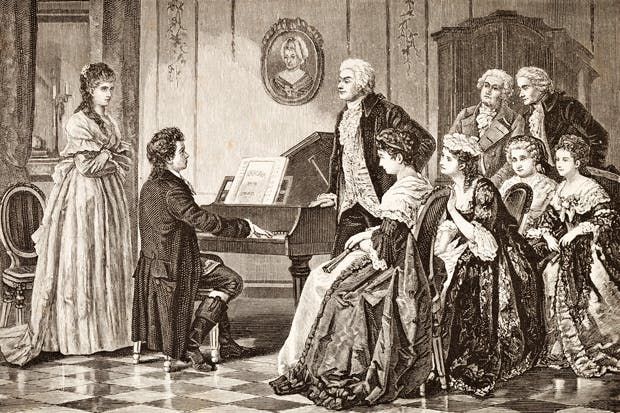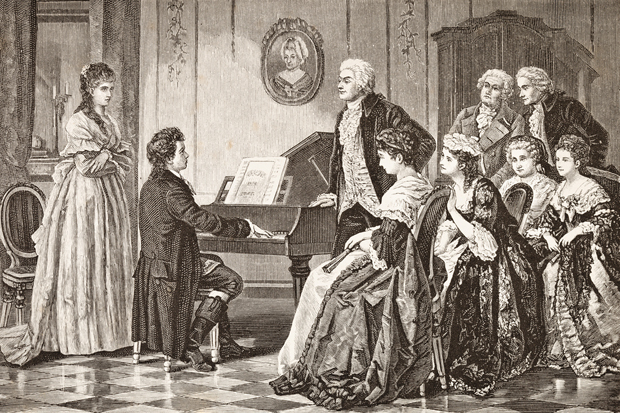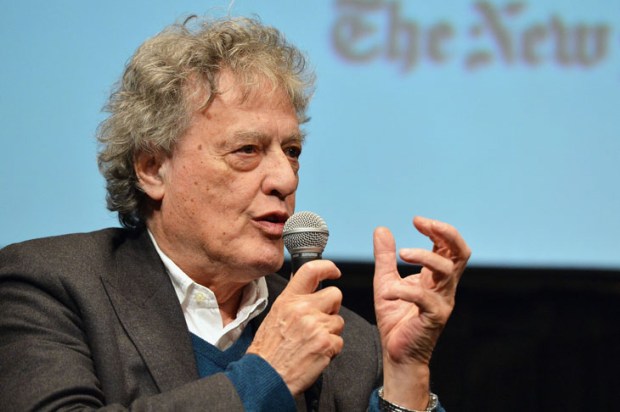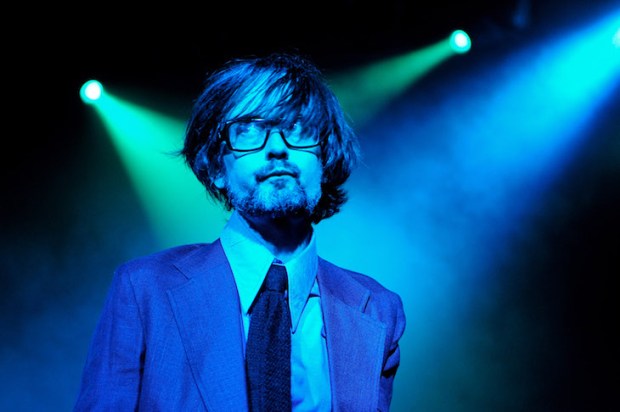Some might say that Jeremy Corbyn is cloth-eared, tone-deaf, socially inept but on Monday morning, as the death of the pop artist David Bowie scrambled the agenda on Radio 4’s Today programme, he was as graceful and twinkle-toed as Bowie himself. The opposition leader had been invited on to the ‘big slot’ just after the eight o’clock bulletin to talk about his ‘shock’ reshuffle last week. David Cameron and the Archbishop of Canterbury, no less, had already provided their rent-a-quote verdicts on Bowie’s life and death. Nick Robinson asked Corbyn for his thoughts. Quick as a flash, he responded, ‘Does that mean I’m joining the great and the good…?’ Before adding his own more measured response: ‘I think it’s great that we’re spending time — just a few minutes — remembering a great musician, a great entertainer, and somebody that really represents all that’s best in the fantastic cultural diversity of this country.’ Right-on, Jeremy.
It’s been a week of serendipitous moments on radio, surprising, memorable, moving, which those who’ve switched to podcasting (the number is increasing day on day) will rarely experience — the magic of hearing something or someone you didn’t at all expect and would never have chosen to listen to. On Sunday I caught by chance Desert Island Discs (produced by Sarah Taylor). Kirsty Young’s guest was a voice I didn’t recognise, which turned out to be Alex Crawford, the foreign correspondent for Sky News. I came in midway through and at first found it hard to engage. Crawford’s choice of music (Fergie, Slumdog Millionaire, Jessie J) was nothing special, the conversation quite matter-of-fact. But then Young asked her, ‘Is there a particular time when you have seriously feared for your life?’ Crawford took us back to an experience in Libya when she (and her camera team) were holed up in a mosque for four hours while it was bombarded with tank fire and other ammunition. You could hear her voice change, her mouth dry up, no saliva.
‘It’s very hard watching people get killed …and there was a lot.’ There was a huge amount of noise (the tanks were the other side of the wall), and they were overpowered by ‘the smells of people bleeding…’ She felt useless; there was nothing they could do. But those being killed had just come to the mosque to pray; they ‘had little briefcases with them because they were on their way to work’.
She then admitted to Young, ‘It’s even frightening recounting it.’
‘I can tell,’ said Young. ‘I can tell by the look on your face.’
The previous week Young’s guest had been the novelist Colm Tóibín. Again, I just happened upon it while deep in marmalade (it’s that time of year), not expecting any deep insights into how he works, what really lies behind his deceptively powerful books. Yet Young brought out so much (in a programme produced by Christine Pawlowsky) and not just about the life experiences that have shaped Tóibín’s work (he lost his father when he was 12). ‘You need a lot of silence,’ he said. ‘Things happen of their own accord as long as you give them peace,’ which probably explains why his books have this extraordinary almost dream-like quality, yet are rooted in the everyday.
These aspects of their conversation were perhaps of more interest to aspiring writers, but then Young probed Tóibín about the effect of that death, which left him for years with a stammer, but also triggered his habit of writing every day. Tóibín told us how for years he had carried his grief around with him, locked inside, never spoken about, thought he was over it, until he met a psychiatrist, the husband of a colleague, who said to him, ‘There’s something wrong, isn’t there?… I know by your body language, by what you’re doing.’ What he went on to say should be required listening for anyone who knows of young children who have lost parents.
On Radio 3 (on Sunday), the esteemed producer Gordon House resurrected one of Tom Stoppard’s early plays for radio, Artist Descending a Staircase, first broadcast in November 1972 and inspired by Marcel Duchamp’s painting, ‘Nude Descending a Staircase No 2’. It’s a strange tale about three artists (here played by a stellar cast of Derek Jacobi, Geoffrey Whitehead and Ian McDiarmid), who’ve spent their lives sharing the same studio, now confronting a mysterious death. One of them has fallen down a staircase. Was it an accident, or was he murdered? If so, which of the artists was responsible? But this is Stoppard and so of course the murder mystery is just an excuse for a highly complex conversation about silence, art, perception, genius.
Stoppard’s first plays were written for radio and this was a masterclass in how you can play with time, meaning, character on a medium where you can’t see what’s happening. Indeed, one of the characters begins with partial sight and then goes blind through the play, creating a confusion that lies at the heart of the drama. What do we really see when we fall in love? What can be heard in silence?
Got something to add? Join the discussion and comment below.
Get 10 issues for just $10
Subscribe to The Spectator Australia today for the next 10 magazine issues, plus full online access, for just $10.













Comments
Don't miss out
Join the conversation with other Spectator Australia readers. Subscribe to leave a comment.
SUBSCRIBEAlready a subscriber? Log in